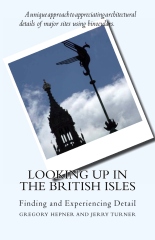What is written endures.
Chose a Topic or browse
Pyschology, Special Education, Travel, Eclectic
Psychology
“Dr. Turner’s book is an excellent first step in the right direction. It is an example of his commitment to doing what is right for students. I found the sections on assessment and the IEP process particularly enlightening. This book would be an informative read for any individual involved in the IEP process..”
- William Shupe, M.A., NPS Principal
Every Day is New Again: A resource guide for care givers. This book is based on Dr. Turner's eight hour dementia presentations given throughout Southern California. It's eight chapters include: Neuro-Anatomy; Dementia Evaluations and Treatments; Alzheimer's Disease, Stages, Therapies, and Behaviors; and Helpful Approaches and Environmental Accommodations for Safety.
Special Education
Only researched-based and proven interventions and changes to optimize your life. Topics include:
- Exercising self-control
- Minimizing stress
- Improving memory
- Controlling pain
and more
School districts must be committed to instructing and providing educational opportunities for all students. Educational outcomes focused on ambitious standards must be set for all students. Improving educational results for students with learning challenges is especially essential in ensuring equal opportunity, full participation, independence, and economic self-sufficiency.
This guide assists teachers and administrators with providing meaningful individualized special education services to students. It provides a clear understanding of the Special Education Department, whose mission is based on three key tenets:
1. Involvement and progress of each student in the general curriculum, including the addressing of the student’s unique learning challenges.
2. Involvement of parents, students, special educators, general educators, and administrators in meeting the individualized educational needs of students.
3. Critical need to prepare students for independence, employment, and post-school activities.
This Special Education Guide contains current philosophy, policies, and procedures related to special education, identification, assessment, eligibility criteria, and services. Many resources are incorporated in the guide. It is a reference and resource for teachers and administrators to meet the educational needs of all students. I thank the administrators, teachers, special education service providers, and staff who reviewed this guide and provided input for its development. It provides clarity of expectations and assurances students receive a quality education through shared commitment.
Based on my travel throughout Europe and America, this journaling system is both structured and freestyle. It helps the new and experienced journaler combine basic information about each place with the aspects that were outstandingly interesting.
Embark on a lifetime journey with The Rhine River Cruise Preparation Guide by Dr. Gregory Hepner, a comprehensive resource designed to elevate your river cruise preparation and experience to new heights. This guide provides invaluable insights and practical advice to ensure every aspect of your cruise groundwork is meticulously planned and flawlessly executed.
Introduction-Cruise Advantages vs. Land Tour sets the stage by comparing the unique benefits of a river cruise over a traditional land tour, providing strategic insights to help you make the most informed decision for your adventure. Whether you’re a seasoned traveler or new to river cruising, the guide offers invaluable advice tailored to optimize both your time and budget.
Miscellaneus
Physics is our human attempt to explain the workings of the world. The success of that attempt is evident in the technology of our society. You have already developed your own physical theories to understand the world around you. Some of these ideas are consistent with accepted theories of physics while others are not. This laboratory manual is designed, in part, to help you recognize where your ideas agree with those accepted by physics and where they do not. It is also designed to help you become a better physics problem solver.You are presented with contemporary physical theories in lecture and in your textbook. In the laboratory you will apply the theories to real-world problems by comparing your application of those theories with reality. You will clarify your ideas by: answering questions and solving problems before you come to the lab; performing experiments and having discussions with classmates in the lab; and writing lab reports after you leave. Each laboratory has a set of problems that ask you to make decisions about the real world. As you work through the problems in this laboratory manual, remember the goal is not to make lots of measurements. The goal is to examine your ideas about the real world.
In these pages are three years of faithful letter writing from a son to his father with dementia. The first three chapters convey the lessons learned in writing letters. These address the mechanics, theory, and art of letter writing learned over this three-year journey.
I started writing dad out of love and frustration. I was frustrated he was three thousand miles away and there was nothing I could do. About eight years earlier, I started including dementia as an area of professional study. This study led me to offer Continuing Education Units to Elder Care Administrators throughout Southern California. Little did I know my own father would develop dementia a few years later. When he was diagnosed, I knew all too well the prognosis. I knew the certainty of memory loss, paranoia, and eventually death.
Chapter five through eight are the letters sent over three years without fail. Although these chapters read more like a journal of my life, you will see the care I took to stay positive; to provide him with certainty I was doing alright while not sounding too Pollyanna. These letters were not written for you, remember when reading, the only intended audience was dad. However, I share them here to provide insight, motivation, techniques, and examples of how to write to a loved one whom you know is unable to respond.
Chapter four is the last letter. Dad will never read or hear it. His passing ended this letter writing exploration. I hope, one day, to have this last letter bronzed and attached to dad's grave marker for all to ponder.
Knowledge is power. This book empowers parents to advocate for the individualized education for which their student qualifies and deserves. Breaking through the fog (procedures), barriers (acronyms), and roadblocks (delay tactics), this book clearly explains rights, procedures, and processes to obtain interventions and services for your student's success.
"A must have resource/reference for special education teachers, general education teachers, service providers, and administrators, Dr. Turner clearly communicates the scope and focus of effective IEP meetings and shares practical advice for case management. He emphasizes collaboration to create the most individualized and effective plans for students. He gives great advice on finding 'replacement behaviors' rather than extinguishing behaviors."
-D. Powell, Independent Study Special Education Teacher
Travel
Looking up in the British Isles is an unique guide to experiencing detail on your next vacation. You can purchase it from amazon.com.
Field trips for educational purposes are most effective with prior planning, a well-designed itinerary, and mechanisms to hold students accountable for gathering and processing their educational information and experiences. This Journey Journal: Washington, DC and Nearby Historic Sites provides a format and mechanism for this process. The book provides the structure and journal writing prompts many students need to learn the process of thoughtful reflective journaling, a lost art for many persons in our text messaging society.
This is a nine-week physics module to be incorporated into an yearlong integrated science course. It begins with an introduction to physics, scientific method, and metric system. It continues through the concepts of velocity, acceleration, Newton’s laws, work, energy, power, momentum, and collisions. The unit ends with an introduction to simple harmonic motion and the properties of waves. There are four laboratory experiments which cover the major concepts presented in the text. It also contains Internet resources at the end of each chapter.
The Foundation for Living consists of three volumes as follows: • A Light Unto Our Path • How We Got Here • Which Way To Go This series of studies builds in such a way to develop a foundational understanding of the Christian faith. Volume One provides a general overview of Bible events, chronology, and organization. Volume Two is an overview of Church history, beliefs, and worship. Using the understandings developed from the first two volumes, the foundations are laid to develop approaches and processes for ethical decision-making in Volume Three. Developed for use at an Episcopal school, Unit III of Volume 3 has a particularly Anglican/Episcopal nature. Parts or all of Unit III of Volume 3 may be omitted for those wanting a more generic and more general approach to Christian ethics. The series is appropriate for middle school or high school use. The volumes may be used individually, but are most effective when used in sequence to develop a foundation for living.












